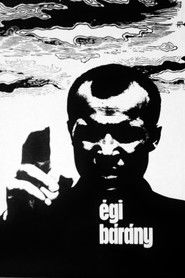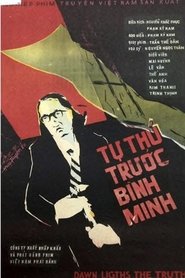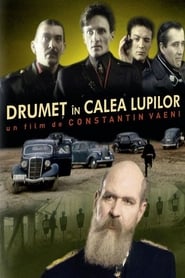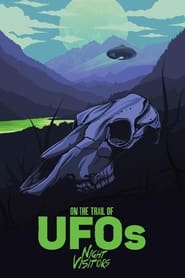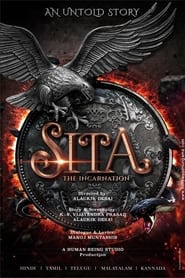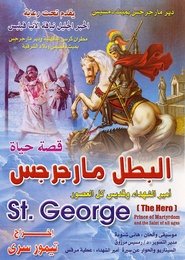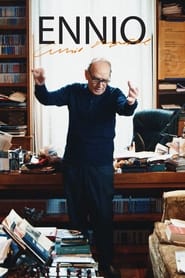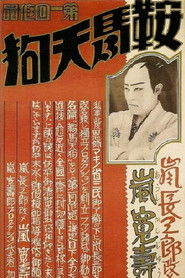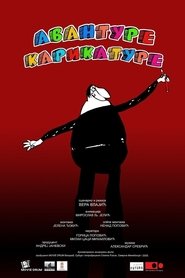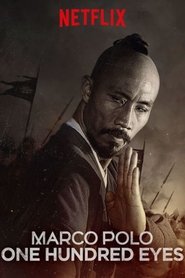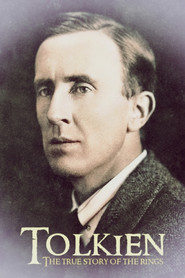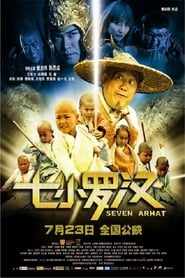Popular History Movies on Pantaflix - Page 356
-
The Lost Viking
2018
The Lost Viking
2018
star 6.4A young Viking called Vitharr arrives in Britain with dreams of conquest and adventure, but when his family and clan are ambushed and killed, he must survive alone in this strange,dangerous new land as he searches for his Uncle's settlement. -
Agnus Dei
1971
Agnus Dei
1971
star 4.2Allegory of the suppression of the 1919 revolution and the advent of fascism in Hungary; in the countryside, a unit of the revolutionary army spares the life of father Vargha, a fanatical priest. He comes back and leads massacres. A new force, represented by Feher, apparently avenges the people, but only to impose a different, more refined and effective kind of repression. -
Confession Before Dawn
1979
One month before the Fall of Saigon, a city in Central Highland plunges into chaos, as its disillusioned citizens prepare to witness what was once a glorious and beautiful time collapse before their own eyes. -
Drumeț în calea lupilor
1990
star 7.2Constantin Văeni succeeds in transcribing a chapter in Romania's modern history, a moment of major crisis, when people confused by history committed the most reprehensible acts against humanity. A movie about the assassination of Nicolae Iorga. -
On the Trail of UFOs: Night Visitors
2022
star 1In the 1960s the cattle mutilation phenomenon became a widespread concern across the American west. Cases erupted around states like Wyoming, South Dakota and Colorado of livestock being preyed upon in ways that puzzled even established scientists. Today, cattle mutilations are thought to go hand in hand with mysterious objects in the skies (commonly referred to as UFOs or UAPs) and that’s what first brought indie documentary crew Small Town Monsters and investigator Shannon LeGro to the Miller Ranch in southern Colorado. -
Pearl Harbor: The world on fire
2021
star 7.7Hawaii, Pacific Ocean. In this heavenly place, one of the most memorable battles of the Second World War took place 80 years ago. On December 7, 1941, at 7:53 am, a Japanese air squadron struck the American fleet which anchored in the waters of Pearl Harbor. The United States were struck at the heart of their defensive system and entered the conflict the very next day. How Pearl Harbor changed the face of World War II and therefore the face of the world? What are the diplomatic undersides of Pearl Harbor? Was the attack really a surprise attack? Is it really a Japanese victory? -
Ephraim's Rescue
2013
Ephraim's Rescue
2013
star 5.7From T.C. Christensen, director of the sensational pioneer film, 17 Miracles, comes the heroic true story of a simple man who was called to do the work of angels. Ephraim’s Rescue relates the story of Ephraim Hanks: a rescuer of the Martin Handcart company. Follow Ephraim as his adventures lead him to join the LDS Church and ultimately to one of the most heroic rescues in American history. With a unique desire to help and strengthen others, Ephraim learns that each choice we make can prepare us for what lies ahead. He discovers, through it all, that decisions determine destiny. -
Sita: The Incarnation
0000
The story of Sita, a Hindu goddess and the female protagonist of the Hindu epic “Ramayana”. -
Chronicles of my Village
2016
star 7In 1960, nine-year-old Bachir dreamed of becoming the son of a martyr because he had heard that the children of martyrs would obtain everything after independence. He sets up a whole plan to get rid of a certain François, enemy of his country, while his father, Saddek, abandoned him with his mother and brothers. Through this fiction, the film looks at the life and visions of little Algerians during the War of National Liberation. Karim Traïdia looks back on his own childhood during the Algerian war (1945-1962). On a humorous note, it tells the adventures of a young child and his innocent friends against the backdrop of a raging merciless war. -
Saint George the Hero
1989
star 8The life of St. George the hero prince of martyrdoms and the Saint of all ages -
Ennio
2022
Ennio
2022
star 8.3A portrait of Ennio Morricone, the most popular and prolific film composer of the 20th century, the one most loved by the international public, a two-time Oscar winner and the author of over five hundred unforgettable scores. -
Kurama Tengu
1928
Kurama Tengu
1928
star 7Kurama Tengu is a 1928 black and white Japanese silent film with benshi accompaniment directed by Teppei Yamaguchi. It is a film which is a part of the series depicting the bold and daring hero Kurama Tengu. The popular series comprises numerous films based on the original novel written by Jiro Osaragi, but those featuring Kanjuro Arashi are considered to be the most valuable. Of note is the last scene in which the main character takes on numerous foes with a sword in each hand. -
Caricature Adventures
2023
The film connects historical events and the interpretations of those events through caricature, with a focus on artists who left their mark and contributed to the importance of this art in the territory that for more than 70 years was a common cultural space of the peoples of the state of Yugoslavia. -
Marco Polo: One Hundred Eyes
2015
star 7.3A defiant warrior-monk arrives at Kublai Khan's court in chains and soon earns his tragic nickname in this 30-minute origin story. -
Tolkien: The True Story of the Rings
2024
star 7An analysis of the sources of inspiration that fed the imagination of the British writer, poet and philologist J. R. R. Tolkien (1892-1973), great master of epic fantasy. -
Fireheart: The Legend of Tadas Blinda
2011
star 5.8A romance blooms between a noblewoman and a common man amid a peasant revolt against the brutal Russian army -
Seven Arhat
2010
Seven Arhat
2010
star 1The Chinese version of Home Alone; this action comedy chronicles the antics of the seven mischievous young monks Do, Re, Mi, Fa, So, La and Si as they seek to outwit a group of grave robbers through entertaining tricks and kung fu. -
Heidi's Alpine Dream
2022
Heidi's Alpine Dream
2022
star 10An account of the life and work of the Swiss writer Johanna Spyri (1827-1901), the barely known artistic mother of Heidi, her brave alpine heroine, who was first introduced to the world between 1880 and 1881, in a novel published in two parts, and became definitely immortal thanks to an anime series, released in 1974, directed by the Japanese genius Isao Takahata. -
The World at War: The Making of the Series
1989
star 10The making of 'The World At War'. Each film in the 26 episode series had to be an essay on an aspect of the war, because the length and separate aspects of the war was far too much to cover in detail. Jeremy Isaacs talks about the production process and the aims of the project. The intention of the crew that were involved with the various skills in making 'The World at War' had no desire to use film from British, German, French, Polish, Russian, Japanese, or the Americans because of their specific means of showing the winning side of a specific action. Rather, an effort was made to interview people who were not part of the establishment, but rather the common people or assistants and secretaries of historical persons. Film was researched for those films from cameras where there was no special subject, but those that would allow the viewer to make their own decisions about what they had just seen and heard.
 Netflix
Netflix
 Amazon Prime Video
Amazon Prime Video
 Apple iTunes
Apple iTunes
 Apple TV Plus
Apple TV Plus
 Disney Plus
Disney Plus
 Google Play Movies
Google Play Movies
 Paramount Plus
Paramount Plus
 Hulu
Hulu
 HBO Max
HBO Max
 YouTube
YouTube
 fuboTV
fuboTV
 Peacock
Peacock
 Peacock Premium
Peacock Premium
 Amazon Video
Amazon Video
 The Roku Channel
The Roku Channel
 AMC+
AMC+
 Kocowa
Kocowa
 Hoopla
Hoopla
 The CW
The CW
 Vudu
Vudu
 Starz
Starz
 Showtime
Showtime
 PBS
PBS
 Pantaflix
Pantaflix
 FXNow
FXNow
 Tubi TV
Tubi TV
 Kanopy
Kanopy
 Comedy Central
Comedy Central
 Crunchyroll
Crunchyroll
 Microsoft Store
Microsoft Store
 Redbox
Redbox
 Sun Nxt
Sun Nxt
 ABC
ABC
 DIRECTV
DIRECTV
 Crackle
Crackle
 Fandor
Fandor
 Plex
Plex

